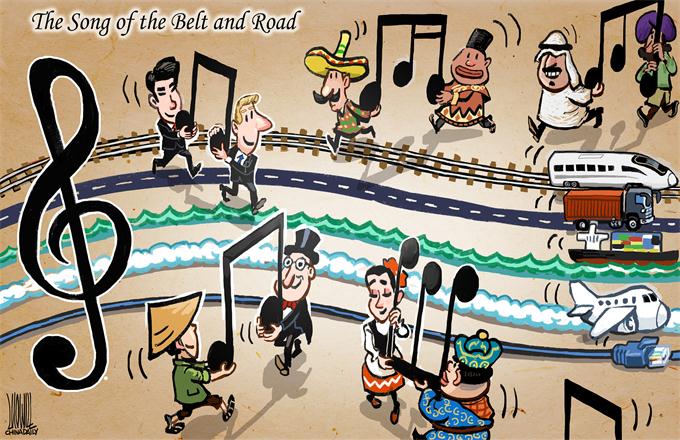Total ban on tobacco ads needed
As the 77th signatory country, China ratified the FCTC in 2005. Although the convention came into force in China in 2006, the ban on TAPS has not been satisfactory. The Advertising Law bans tobacco ads in only five types of mass media: radio, movies, TV, newspapers and magazines, leaving plenty of room for tobacco companies' to market their products.
The law does not ban outdoor, online and point-of-sale ads of tobacco products. And though the State Administration of Radio, Film and TV issued directives in February 2011 to control the portrayal of smoking in movies and TV serials, placement cigarette ads can still be seen in the mass media.
China's compliance with the TAPS ban has been rather poor. According to the WHO Global Report on the Tobacco Epidemic 2011, China's score for compliance with advertising ban is only 3 on a scale of 10. The Global Adult Tobacco Survey 2010 shows that 19.6 percent of the adults in China reported seeing TAPS in the media (especially in TV commercials) and public places within the past 30 days, while the number of young people (15-24 years) is 27.5 percent.
In December 2012, China issued the National Tobacco Control Plan 2012-15 as part of its commitment to ban TAPS. But some tobacco control professionals say the plan is not comprehensive enough and lacks practical and effective measures to guarantee a complete ban on TAPS.
Tobacco companies will find "smarter" ways of marketing their products to make profits, so a ban on all forms of TAPS is the only way to plug the loopholes in the 2012-15 tobacco control plan. A total ban on TAPS, however, cannot be imposed without an amendment to the Advertisement Law, something that tobacco companies have obstructed for long. Besides, strict punishment has to be imposed on violators to prevent any fiddling with the law.
Strict law enforcement is the key to tobacco control. Without strict enforcement, even a perfect law can become useless. Experiences of other countries show that social organizations' efforts and public campaigns to change society's attitude toward smoking are crucial to tobacco control. Fortunately, most of the Chinese people have realized the harmful effects of smoking and do support the ban on TAPS.
According to China International Tobacco Control Project, 68 percent of smokers and 84 percent of non-smokers disagree or strongly disagree on whether tobacco companies should be allowed to advertise and promote cigarettes as they please. In a country with a long history of tobacco use and influential tobacco companies, the public has to become the main force demanding a complete ban on TAPS in order to prevent our children from smoking and safeguard their health.
The author is a writer with China Daily.
E-mail: wangyiqing@chinadaily.com.cn.
(China Daily 05/31/2013 page9)

















